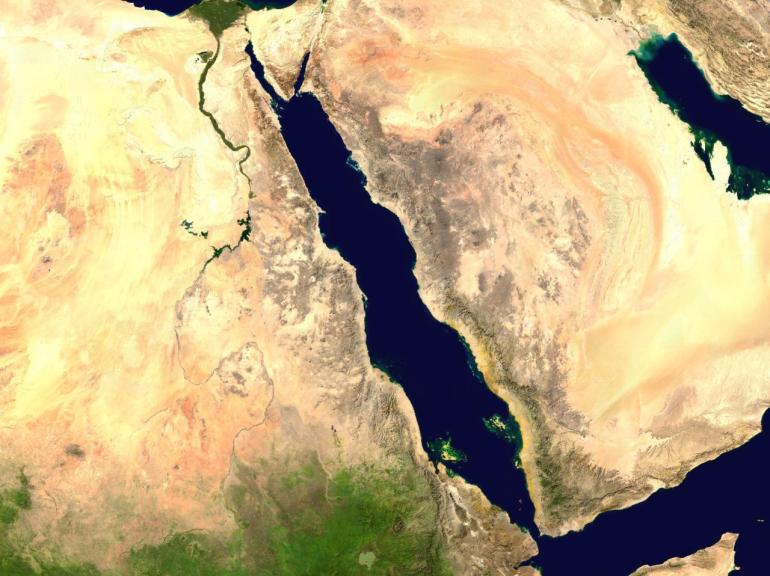Anchored off the coast of Yemen overlooking the Red Sea, an oil tanker with a load of more than a million barrels of oil neglected since the beginning of the Yemen war, that is, 5 years ago. It can drown at any time after water has seeped into the engine room.
In his article published by the Swiss newspaper, "Le Temps", the writer Luis Lima said that the "Saffer" tanker was used as a floating storage platform connected to a 7-kilometer seabed pipeline.
This dilapidated carrier is 45 years old, knowing that it should have been discarded two decades ago. It carries about 1.14 million barrels of oil, and if its content leaks into the Red Sea, the planet will face one of the most serious environmental disasters ever.
Without maintenance
Activities in the Ras Issa port north of Al Hudaydah, controlled by the Houthis, have been stalled since the war broke out in March 2015.
It has been more than 5 years since the last time the Safir tanker underwent minimal maintenance, while its chassis continues to corrode due to salt and heat.
As calls have grown over the past two years, the environmental threat this carrier poses has increased dramatically. "We have not been able to take any action in years," said the UN Office for the Coordination of Humanitarian Affairs (OCHA) spokesman, Jens Lerk.
The writer quoted Lerck as saying that an international technical team is already ready to go to the site to assess the damage, and perhaps to make the first urgent reforms, stressing that "the Houthis officially informed them of their approval of this mission."
In light of the critical situation the country is going through as a result of the war, "this team will not enjoy any other protection once it reaches there."
Although this mission remains risky, these technicians are ready to go immediately. ”It should be noted that there are rumors of explosive devices planted around the ship, and possibly even on board.
Bargaining chip
In the past, the Houthis promised to open the ports of the United Nations, before immediately closing them without providing any clarifications. At the beginning of the war, the value of the oil on board the Safir tanker was about $ 80 million.
But since then, crude oil prices have fallen, and the oil coming from the Marib fields, which has become light and of poor quality, has lost almost all its value.
It is likely that the proceeds of the sale will not be sufficient to offset the costs of the works necessary to empty the tanker and to ward off the risk of oil spills.
For the Houthis, the importance of this tanker does not stop there. For them, the tanker and the environmental risks it poses to them have become a bargaining chip in any potential negotiations.
An environmental and humanitarian catastrophe
Besides hundreds of thousands of endangered birds and fish, Yemen is awaiting a humanitarian catastrophe on several levels.
More than 100,000 families earn their livelihood from fishing, and this danger threatens desalination plants, which are often the only way to obtain safe drinking water.
According to the United Nations Humanitarian Coordinator in Yemen, Liz Grande, in an interview with "AFP" if the ship crashes, there will be two catastrophes, an unprecedented environmental catastrophe, and another humanitarian catastrophe because the oil will make the port of Hodeidah unusable.
Another coral reef
And while coral reefs die everywhere due to global warming, those in the Red Sea are the only ones in the world to resist, especially in the northern Red Sea, which stretches over 1,800 km.
"This is a biological miracle and a true gift," says Professor Anders Mebom of the Lausanne Federal School of Applied Arts.
After coral reefs have grown in warm waters in the south, these reefs still have a margin of adaptation in the milder waters of the northern sea.
"Unlike coral reefs in Australia and the Caribbean, reefs in the Red Sea can still withstand if the temperature rises by two or three degrees. But they must be safe from serious local pollution," Mebom added.
The writer concluded that, in recognition of the impact of the consequences on them, the riparian countries of the Red Sea (such as Egypt, Jordan, Saudi Arabia and Sudan) joined the internationally recognized Yemeni government to demand urgent action by the United Nations Security Council to avert this catastrophe.
"The problem is that there is no truly neutral party in this case. If the Houthis politicize the file, the same will apply to the other side," said Meibom.

